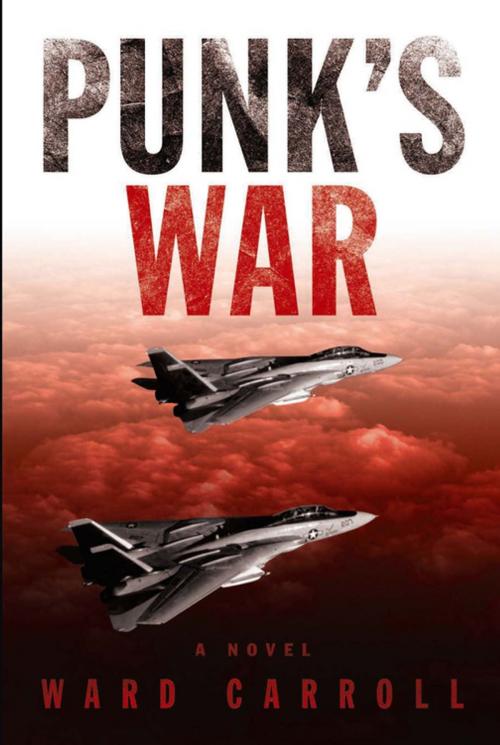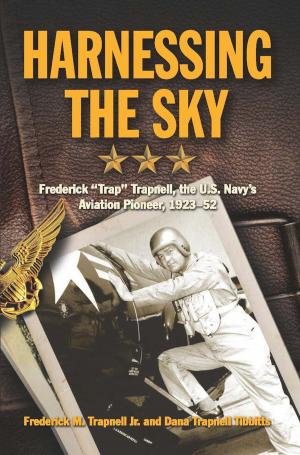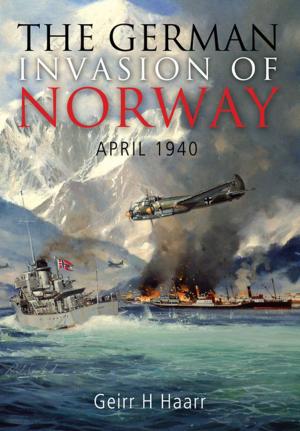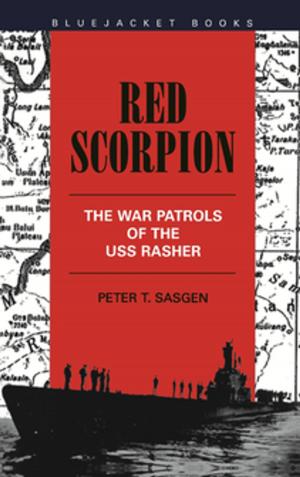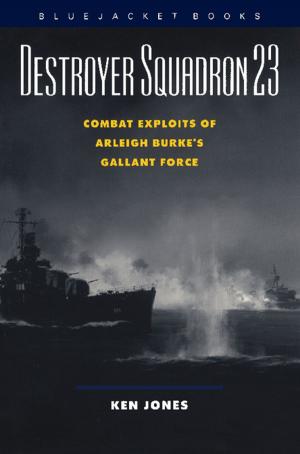| Author: | Ward Carroll | ISBN: | 9781612515533 |
| Publisher: | Naval Institute Press | Publication: | March 15, 2014 |
| Imprint: | Naval Institute Press | Language: | English |
| Author: | Ward Carroll |
| ISBN: | 9781612515533 |
| Publisher: | Naval Institute Press |
| Publication: | March 15, 2014 |
| Imprint: | Naval Institute Press |
| Language: | English |
An F-14 aviator takes his readers into the cockpits, ready-rooms, and bunkrooms of today's Navy to show what it's like to fight in a time of so-called peace. From the opening chapter where a Tomcat fighter squadron's commanding officer botches an intercept of a hostile Iranian F-4 to the final uplifting scene, his novel reveals the inner workings of the military as only an insider can. It is a thriller without an airshow groupie's pretense, a fighter pilot's story as honest as it is riveting. The action is gripping and authentic, yet it punctuates rather than drives the plot. Seldom has fiction been so real.
Punk's War is part adventure tale, part introspective commentary. Adopting the tone of the quixotic lieutenants who populate its pages, the novel helps us understand the pressures on this new generation of warfighters. Along the way we are introduced to an engaging cast of characters: a self-centered careerist squadron commander hell-bent on fixing his tainted professional reputation; a reluctant air-wing commander more suited for life within the walls of the Pentagon than on a flight deck at sea; a battle-group commander reared in the art of driving ships, but thrust into the snap decision matrix of supersonic jets; and a host of junior officers. Seeking only the ideals they were promised, these technology-savvy aviators are products of pop culture, unimpressed by rank for its own sake and unresponsive to petitions in the name of the profession's lofty mottos. Unlike other books about the business of flying from aircraft carriers, this novel provides serious food for thought about leadership and retention--what motivates young people to keep doing what they do despite the dangers, disappointments, and personal sacrifices. Best-selling novelist Stephen Coonts describes the author as Tom Clancy crossed with Joseph Heller, his book as a refreshing twist on the military thriller.
Punk's War is part adventure tale, part introspective commentary. Adopting the tone of the quixotic lieutenants who populate its pages, the novel helps us understand the pressures on this new generation of warfighters. Along the way we are introduced to an engaging cast of characters: a self-centered careerist squadron commander hell-bent on fixing his tainted professional reputation; a reluctant air-wing commander more suited for life within the walls of the Pentagon than on a flight deck at sea; a battle-group commander reared in the art of driving ships, but thrust into the snap decision matrix of supersonic jets; and a host of junior officers. Seeking only the ideals they were promised, these technology-savvy aviators are products of pop culture, unimpressed by rank for its own sake and unresponsive to petitions in the name of the profession's lofty mottos. Unlike other books about the business of flying from aircraft carriers, this novel provides serious food for thought about leadership and retention--what motivates young people to keep doing what they do despite the dangers, disappointments, and personal sacrifices. Best-selling novelist Stephen Coonts describes the author as Tom Clancy crossed with Joseph Heller, his book as a refreshing twist on the military thriller.
An F-14 aviator takes his readers into the cockpits, ready-rooms, and bunkrooms of today's Navy to show what it's like to fight in a time of so-called peace. From the opening chapter where a Tomcat fighter squadron's commanding officer botches an intercept of a hostile Iranian F-4 to the final uplifting scene, his novel reveals the inner workings of the military as only an insider can. It is a thriller without an airshow groupie's pretense, a fighter pilot's story as honest as it is riveting. The action is gripping and authentic, yet it punctuates rather than drives the plot. Seldom has fiction been so real.
Punk's War is part adventure tale, part introspective commentary. Adopting the tone of the quixotic lieutenants who populate its pages, the novel helps us understand the pressures on this new generation of warfighters. Along the way we are introduced to an engaging cast of characters: a self-centered careerist squadron commander hell-bent on fixing his tainted professional reputation; a reluctant air-wing commander more suited for life within the walls of the Pentagon than on a flight deck at sea; a battle-group commander reared in the art of driving ships, but thrust into the snap decision matrix of supersonic jets; and a host of junior officers. Seeking only the ideals they were promised, these technology-savvy aviators are products of pop culture, unimpressed by rank for its own sake and unresponsive to petitions in the name of the profession's lofty mottos. Unlike other books about the business of flying from aircraft carriers, this novel provides serious food for thought about leadership and retention--what motivates young people to keep doing what they do despite the dangers, disappointments, and personal sacrifices. Best-selling novelist Stephen Coonts describes the author as Tom Clancy crossed with Joseph Heller, his book as a refreshing twist on the military thriller.
Punk's War is part adventure tale, part introspective commentary. Adopting the tone of the quixotic lieutenants who populate its pages, the novel helps us understand the pressures on this new generation of warfighters. Along the way we are introduced to an engaging cast of characters: a self-centered careerist squadron commander hell-bent on fixing his tainted professional reputation; a reluctant air-wing commander more suited for life within the walls of the Pentagon than on a flight deck at sea; a battle-group commander reared in the art of driving ships, but thrust into the snap decision matrix of supersonic jets; and a host of junior officers. Seeking only the ideals they were promised, these technology-savvy aviators are products of pop culture, unimpressed by rank for its own sake and unresponsive to petitions in the name of the profession's lofty mottos. Unlike other books about the business of flying from aircraft carriers, this novel provides serious food for thought about leadership and retention--what motivates young people to keep doing what they do despite the dangers, disappointments, and personal sacrifices. Best-selling novelist Stephen Coonts describes the author as Tom Clancy crossed with Joseph Heller, his book as a refreshing twist on the military thriller.
